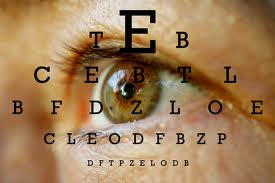This post was most recently updated on March 28th, 2020
What are Cataracts?
For people with normal vision, the lens of the eye is clear. For people with cataracts, however, this lens becomes cloudy. Although unnoticeable at first, this cloudiness leads to poor vision, double vision, blurriness, halos, light sensitivity, and a decrease in vision that requires you to change your glasses prescription regularly.
How Fast do Cataracts Develop?
Except in unique cases, cataracts develop over a long period of time. Cataracts are typically age-related, and patients with this condition tend to notice the progression over a period of a couple of years. Certain risk factors can speed up the process such as an underlying disease, additional vision problems, certain medications, and other environmental factors that can affect how quickly cataracts become a problem.
What are the Risk Factors of Cataracts?
The fact is that a good portion of people will end up having cataracts at some point in their life, especially as they get older. However, there are certain risk factors that can increase this chance. Excessive smoking and alcohol can lead to the development of cataracts. Individuals with diabetes are at a higher risk for developing this condition, as well as individuals who have had previous eye injuries. Obesity, old age, certain medications, and UV exposure can all increase your risk as well. Although most cases are seen in older people, younger people and even babies can develop cataracts.
Are Cataracts Genetic?
Although anyone can get cataracts as they age, there seems to be a genetic factor in who gets this condition. If there is a family history of cataracts, it is reasonable to assume that you will also have them as you age as there is a higher likelihood for these people. It is important to let your Denver eye doctor know about your family health history to help make a plan for your eye health.
Are Cataracts Preventable?
Although it is not possible to guarantee the prevention of cataracts, there are certain things that you can do to help lower the risk. Focusing on a nutritious diet that includes plenty of fruits, vegetables, and organic meats can help to keep cataracts at bay. Although there has not been any research on the subject, consuming antioxidants and probiotics can also help. It is recommended to quit smoking and to limit alcohol consumption. Taking care of related diseases such as diabetes and keeping it under control can also go a long way in preventing the development of cataracts.
Additionally, mild cases can be managed simply by changing environmental factors such as the lighting in the home or office, and by getting a new prescription for your glasses or contacts. Some individuals find that they can manage the effects of vision impairment by using a magnifying glass when viewing close-up objects. However, once cataracts begin to severely impact day to day life, it may be time to discuss the next step with your doctor.
What is Cataract Surgery?
The good news is, even if you are unable to prevent cataracts from developing or manage them effectively, the surgery for cataract removal is painless, easy, and low risk. Cataract surgery involves surgically taking out the clouded lens and inserting an intraocular lens in its place. The surgery will take approximately an hour to complete. Patients are generally awake during the process, with a local anesthetic applied to the eye.
Most doctors use an ultrasound machine that works at a high-frequency, breaking up the cataract so that it can be removed using a vacuum. This allows for faster healing due to a smaller incision area.
As with any surgical procedure, there are risks that come with cataract-removal surgery. One of these is retinal detachment which has occurred in a small number of patients. Another risk is POC or posterior capsule opacification. A POC will generally remind patients of their cataracts because it causes the same cloudy and blurry effect. However, it is simply caused by cells regrowing in the area. It can usually be resolved with a YAG laser treatment. This laser procedure can be done within minutes and involves a laser that knocks off the cell growth without making any incisions. This is considered a low-risk procedure and generally results in significantly improved vision afterward
Although cataracts can greatly affect a person’s ability to see clearly, the condition develops very gradually and can be treated very effectively by the use of cataract surgery. Your doctor will be able to tell you if you are developing cataracts and will be able to advise you on whether the surgery will be needed. Make sure to always schedule your annual check-up to ensure the health of your vision.

